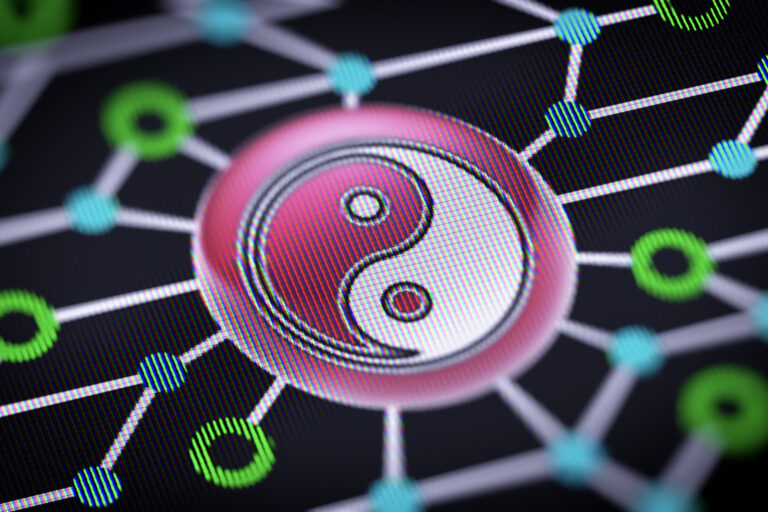In this digital age, artificial intelligence (AI) has made its way into every aspect of our lives, from customer service bots to self-driving cars. The question we seek to answer is whether AI could potentially replace a Feng Shui Master.
Feng Shui, the ancient Chinese practice of harmonizing people with their environment, has been in existence for thousands of years and relies heavily on the expertise of a good Feng Shui Master. But could technology be the next step in this age-old tradition?
Table of Contents
Understanding the Role of a Good Feng Shui Master
A good Feng Shui Master has a profound understanding of the universe’s natural energies. They possess the knowledge to read and interpret the ‘Qi’ or energy flow within spaces, enabling them to provide advice on how to create harmony and balance.
This not only involves spatial arrangement but also takes into account time elements, personal data, and environmental factors.
A Feng Shui Master’s training involves years of study, encompassing Chinese metaphysics, astrology, geography, geomancy, architecture, as well as traditional philosophies and Chinese practices of deity and ancestor worship.
A good Feng Shui master must be skilled in using critical tools like the Bagua and the Luo Pan, which are essential for a comprehensive Feng Shui analysis.
The Bagua, an eight-sided grid, is utilized to analyze the energy of a space and how it corresponds to various aspects of life such as wealth, relationships, and health. For the practical application of Feng Shui, the master should be proficient in interpreting the Bagua to establish a harmonious balance in the living or workspace.
Moreover, a good Feng Shui master also needs to be adept at using the Luo Pan, a complex Chinese compass, to assess the directional influences on a given space. By interpreting the readings from the Luo Pan, they can determine the flow of ‘Qi’, or energy, and implement the necessary changes to enhance positivity and prosperity.
This vast array of knowledge allows them to create personalized solutions that an AI system might find hard to replicate.
Understanding Artificial Intelligence
Artificial Intelligence is a branch of computer science aiming to build machines capable of mimicking human intelligence. AI can analyze large amounts of data, identify patterns, and make decisions. It’s being applied in various fields, from healthcare to finance, proving its potential to handle complex tasks.
Despite its advanced capabilities, AI has limitations. It lacks the human touch—intuition, emotion, cultural understanding, and the ability to empathize with the client—all of which are critical in Feng Shui consultations.
The Intersection of Artificial Intelligence and Feng Shui
The prospect of AI in Feng Shui isn’t entirely far-fetched. AI could potentially analyze a space based on Feng Shui principles, taking into account directions, elements, and spatial relationships, and suggest changes to enhance positive energy.
However, the question remains whether AI can fully comprehend the spiritual and cultural aspects of Feng Shui.
While there aren’t many examples of AI in Feng Shui yet, AI’s use in similar fields offers a glimpse into its potential.
For example, in architecture and interior design, AI tools help in creating efficient and aesthetically pleasing designs by analyzing numerous parameters.
The Debate: Can AI Truly Replace Feng Shui Masters?
While it’s clear that AI could support aspects of Feng Shui practice, the debate about its ability to replace a Feng Shui Master is complex.
On one hand, AI’s ability to process vast amounts of data quickly could streamline the Feng Shui consultation process.
On the other hand, the inability of AI to provide a personalized touch, understand cultural nuances, and form intuitive judgments presents a significant challenge.
As per the views of Feng Shui experts, the human element in Feng Shui practice is irreplaceable. Even as technology advances, the experience and wisdom of a Feng Shui Master, their ability to understand a client’s unique needs and circumstances, and their capacity to provide personalized guidance are unlikely to be replicated by AI completely.
How Feng Shui Masters Can Make Use of AI
In today’s modern era, Feng Shui masters can also tap into the potential benefits of AI to improve their practice and better serve their clients.
While AI may not be able to fully replicate the personal touch and in-depth knowledge that a trained Feng Shui master can offer, it can still be a useful tool in certain aspects of the practice.
- Advanced Data Analysis: AI’s strength lies in its ability to analyze and interpret large volumes of data quickly and accurately. Feng Shui masters could use this to study patterns, predict trends including the luckiest Chinese Zodiac fortunes forecast, and gain insights from extensive Feng Shui databases and historical data.
- Virtual Reality Simulations: With AI-powered Virtual Reality (VR), Feng Shui masters can create interactive simulations of different Feng Shui arrangements. This allows for a more immersive and experiential consultation with clients who can then better visualize and understand the recommendations made.
- Personalized Recommendations: AI can help in generating personalized Feng Shui recommendations based on individual’s specific needs, preferences, and life circumstances. With AI’s learning capability, these recommendations can become more accurate over time as the system learns from feedback and results.
- 24/7 Availability: AI can offer round-the-clock support, answering simple Feng Shui-related queries or providing basic consultation services. This would free up time for the Feng Shui master to focus on more complex cases and matters.
- Augmenting Luo Pan Readings: AI algorithms could be developed to assist with the interpretation of Luo Pan readings. Although it would still require a Feng Shui master’s expertise to understand the intricacies and nuances, AI can help streamline the process and improve accuracy.
It’s clear that AI has a role to play in the future of Feng Shui, not as a replacement for Feng Shui masters but as a complementary tool that enhances their capabilities.
In embracing AI, Feng Shui masters can stay relevant and provide even better services to their clients.
Balancing Tradition and Technology
While AI’s advancements are undeniably impressive, it seems that, for now, the Feng Shui Master’s role is safe from technological takeover.
The blend of ancient wisdom, intuitive judgment, and a deep understanding of cultural and spiritual aspects of Feng Shui appear to be uniquely human capabilities. However, who knows what the future holds?
As AI continues to evolve, we might find ourselves revisiting this topic. For now, if you’re seeking Feng Shui advice, your best bet is likely a human Feng Shui Master.
Can AI replicate the spiritual aspect of Feng Shui?
AI may mimic some processes of Feng Shui, but the spiritual and intuitive aspects, which rely heavily on human judgment and experience, cannot be replicated by AI.
Can AI help in learning Feng Shui?
Yes, AI can provide access to extensive resources and tools for learning Feng Shui but it cannot replace the experience and insights of a trained Feng Shui expert.
How is AI used in Feng Shui currently?
Presently, AI is primarily used in Feng Shui for data analysis, pattern recognition, and to provide simplified Feng Shui tips based on algorithms.
Will Feng Shui Masters become obsolete because of AI?
Unlikely. While AI can enhance certain aspects of Feng Shui, the intuitive and spiritual aspects, coupled with the extensive knowledge and experience of a Feng Shui Master, cannot be fully replicated by AI.
What is the role of a Feng Shui Master in the age of AI?
A Feng Shui Master’s role remains crucial in providing personalized advice, making sense of complex Feng Shui principles, and offering wisdom and guidance based on their vast experience and intuitive understanding.
Can AI perform Feng Shui audits?
While AI can aid in the collection and analysis of data, the final interpretation and application of Feng Shui principles still require human judgement and intuition, which AI lacks. Hence, a Feng Shui expert is still needed for accurate Feng Shui audits.
Can I engage a Feng Shui master from any country I wish?
Yes, modern technology allows you to engage a Feng Shui master from any country through online consultations. Utilizing floor plans, photos, and video conferencing, Feng Shui masters can offer precise and effective advice remotely. For those seeking expertise tailored to specific environments, engaging one of the best Singapore Feng Shui masters can be advantageous. Known for their mastery of traditional practices and adaptability to global settings, Singapore’s Feng Shui masters provide unparalleled guidance suited to modern needs.



